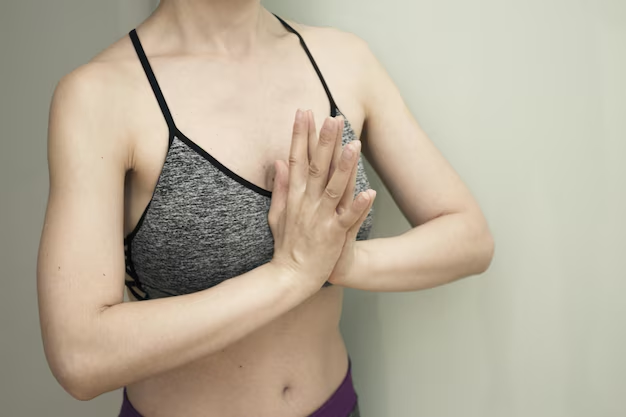Understanding Your Body: Recognizing the Signs of Breast Cancer
Breast cancer is a phrase that can evoke fear and uncertainty, yet understanding its early signs and symptoms can empower you to take control of your health. As one of the most commonly diagnosed cancers in women, knowing what to watch for and when to seek professional guidance is crucial. This guide will help you comprehend the indicators of breast cancer, understand associated risk factors, and recognize next steps without offering medical advice.
What Are the Early Signs of Breast Cancer?
Breast cancer's early signs often manifest subtly, which makes routine self-examinations important.
Look for Changes in Your Breasts
Lumps or Masses: The most common early sign is a lump or mass in the breast tissue. While some lumps can be benign, a hard, painless mass that feels different from surrounding tissue warrants attention.
Alteration in Size or Shape: A noticeable change in the size or the shape of your breasts can be a signal that should not be ignored.
Skin Changes: Be alert for dimpling, redness, or puckering of the breast skin. Any textural change resembling the surface of an orange could require further evaluation.
Pay Attention to Nipple Characteristics
Nipple Discharge: Although rare, discharge from the nipple — especially if it is bloody — should be discussed with a healthcare professional.
Inversion or Retraction: A nipple turning inward or pulling back into the breast is another potential sign warranting attention.
Experiencing Pain or Tenderness
While breast pain is more commonly linked with benign conditions, persistent pain or tenderness should not be overlooked.
Recognizing Risk Factors
Understanding your risk factors can help you make informed decisions about your health.
Genetic Factors
Family History: A family history of breast cancer can increase risk, especially if close relatives have been diagnosed.
Genetic Mutations: BRCA1 and BRCA2 are gene mutations linked to higher risks. Genetic testing can provide insight if there's significant family history.
Lifestyle Considerations
Alcohol Consumption: Regular consumption of alcohol is linked to increased risk. Moderation is key.
Diet and Weight: Maintaining a healthy weight and a balanced diet reduces risk.
Physical Activity: Regular exercise has been shown to lower overall risk.
Other Factors
Age: The risk increases as you age. Most cases are diagnosed in women over 50.
Reproductive History: Menstruating early or starting menopause later increases exposure to hormones, slightly elevating risk.
Breast Density: Dense breast tissue can make it harder to identify problems on mammograms and is associated with an elevated risk.
The Importance of Regular Screenings
Mammograms and Their Role
Mammograms play a crucial role in early detection and are advised regularly for certain age groups or those with risk factors. They can detect changes in the breast that might not be physically noticeable.
Self-Examinations
Conducting monthly self-exams familiarizes you with the usual state of your breasts, making it simpler to detect changes.
Visual Inspection: Observe in the mirror for any changes in appearance.
Manual Examination: Use circular motions to feel all parts of your breast, including underarms.
Professional Exams
In addition to self-exams, professional exams provide an extra layer of assurance. Discuss the frequency of professional check-ups with your healthcare provider based on individual risk.
Exploring the Psychological Aspect
A potential breast cancer diagnosis can be emotionally demanding. Therefore, it’s important to address the psychological impact and the stigma often associated with discussing breast health.
Understanding Emotional Responses
Fear and Anxiety: Common reactions but should be managed to avoid paralyzing effects.
Support Systems: Building a network of friends, family, or support groups can provide emotional comfort.
Counseling: Professional guidance can help cope with the emotional effects of monitoring breast health.
Taking Action Without Panic
When to Consult a Healthcare Provider
Act promptly but without panic if you notice potential warning signs. Early consultation with a healthcare provider can lead to a timely evaluation.
Navigating the Healthcare System
For those new to navigating healthcare resources, begin by discussing your concerns with a primary care provider, who can guide further action and potential specialist consultations if necessary.
Garnering Resources
Educational Material: Utilize reputable resources to better understand breast health.
Local Support Groups: Seek community support for emotional reinforcement.
Conclusion: Empowering Your Journey
Recognizing the signs of breast cancer involves understanding both the physical indicators and underlying risk factors. While the topic can seem daunting, armed with the right knowledge, you can approach your health with confidence and strength. Remember, early detection is vital, and regular check-ups, both self and professional, can be your best ally. Stay informed, be proactive, and maintain dialogue with your healthcare providers to ensure your wellbeing.
Key Takeaways 📝
- Be vigilant for lumps or changes in breast size, shape, or skin texture.
- Understand personal risk factors such as genetics and lifestyle.
- Regular mammograms and self-exams are crucial for early detection.
- Cultivate a supportive environment to help navigate emotional aspects.
- Act promptly but remain calm when changes are noticed, consulting with healthcare providers quickly.
Staying informed and proactive is the most significant step towards maintaining optimal breast health. 🌸

Related Articles
- Are Breast Cancer Lumps Painful
- Are Chills a Sign Of Cancer
- Are Colon Spasms a Sign Of Cancer
- Are Lytic Lesions Always Cancer
- Are Polyps Cancer
- Can a Blood Test Detect Cancer
- Can a Ct Scan Detect Cancer
- Can a Dexa Scan Show Cancer
- Can a Gastric Emptying Scan Show Cancer
- Can a Lung Biopsy Cause Cancer To Spread
